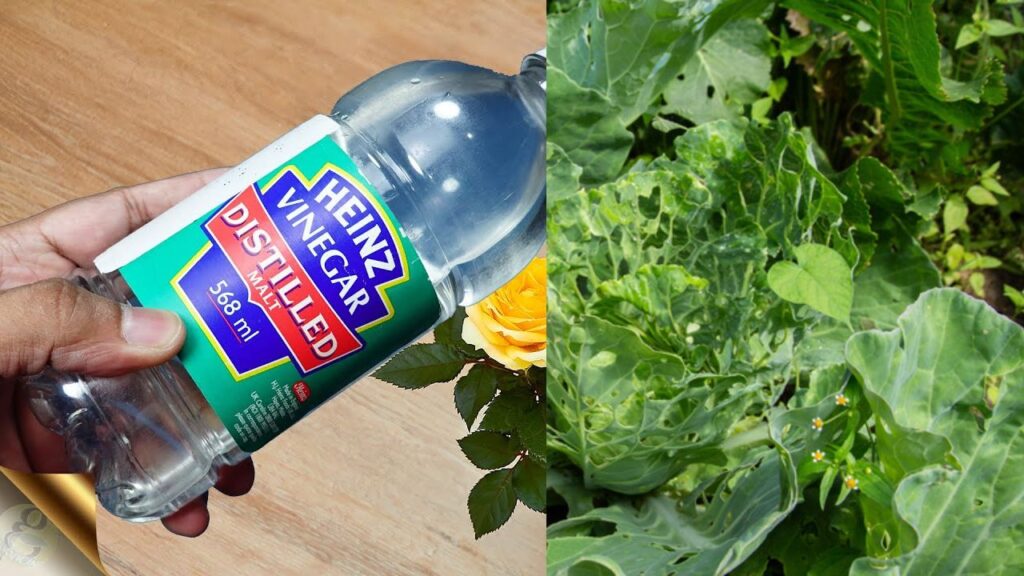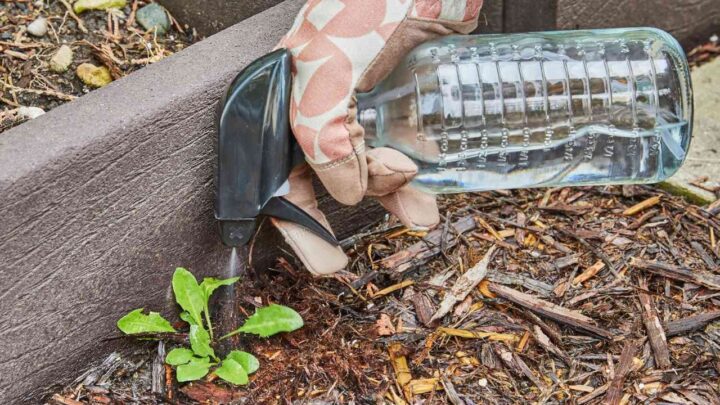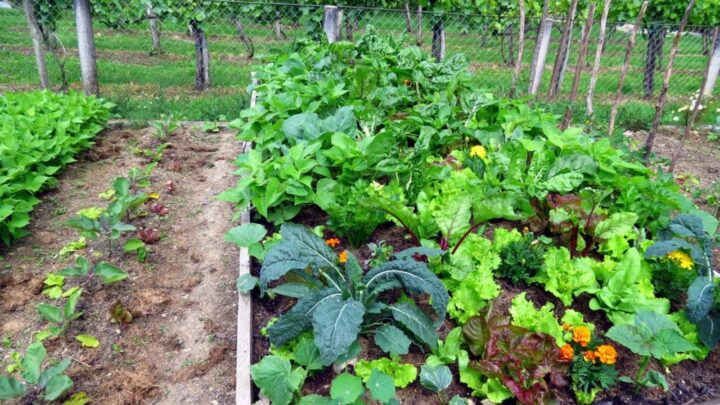Vinegar in Garden – Using vinegar in your garden can be both a blessing and a curse. When used correctly, it helps control weeds, clean tools, and repel pests, but when misused, it can harm your plants and soil balance.

Why Gardeners Use Vinegar
Vinegar is a natural, affordable solution that many gardeners rely on for eco-friendly garden care. Its acetic acid content helps kill unwanted weeds, sanitize pots, and even deter insects. However, using vinegar without understanding its effects can damage plant roots and beneficial soil organisms. Always remember that **household vinegar** and **horticultural vinegar** differ in strength — one is mild, while the other can be harsh on plants if overapplied.
Best Uses of Vinegar in Gardening
When used carefully, vinegar becomes a powerful garden ally. Here are some effective ways to apply it safely:
- Use vinegar as a weed killer between garden paths or driveways.
- Mix vinegar and water to clean garden tools naturally.
- Spray diluted vinegar to repel ants and slugs from flower beds.
- Use vinegar to remove mineral buildup from clay pots.
- Soak hands in diluted vinegar after gardening to remove dirt and stains.
Remember — never spray vinegar directly on plant leaves or roots unless you’re targeting weeds.
Step-by-Step Guide to Using Vinegar in Your Garden
- Step 1: Identify the Purpose
Decide whether you’re using vinegar to clean, kill weeds, or repel pests. Each purpose requires a different vinegar type and concentration. For example, household vinegar works for cleaning, while horticultural vinegar is stronger for weed control. Misidentifying the goal can lead to unwanted plant damage.
- Step 2: Prepare the Right Solution
Mix one part vinegar with three parts water for general use. For tougher weeds, use a stronger solution (up to 20% acetic acid). Always test a small area before applying widely. This ensures your soil or nearby plants won’t get harmed by excess acidity.

- Step 3: Apply at the Right Time
Apply vinegar on a sunny, dry day for best results. The sunlight enhances its weed-killing power and prevents dilution from rain. Avoid windy days, as vinegar spray can drift and damage nearby plants unintentionally.
- Step 4: Target the Right Areas
Focus your application on driveways, garden paths, and areas between stones. Do not spray vinegar near your vegetable beds or around delicate roots. Vinegar does not distinguish between good and bad plants — it kills both if misused.
- Step 5: Rinse and Neutralize
After a few hours, rinse the treated area with water if it’s close to desired plants. This helps neutralize the acidity and protect your soil microbes. If vinegar accidentally touches a plant, rinse immediately to avoid leaf burn.
- Step 6: Repeat Carefully
Reapply only when necessary — usually after two weeks. Overusing vinegar can lower your soil’s pH and reduce fertility. Consistency matters, but moderation keeps your garden thriving safely.

Common Mistakes to Avoid When Using Vinegar
- Spraying vinegar directly on desirable plants.
- Using high-strength vinegar without dilution.
- Applying during windy or rainy weather.
- Ignoring the pH impact on your soil.
- Skipping a test patch before full application.
Extra Tips for Safe Vinegar Gardening
- Store vinegar in a cool, dry place away from sunlight.
- Label your vinegar spray bottles clearly.
- Combine vinegar with dish soap for stronger weed control.
- Use protective gloves and goggles while spraying.
- Consider vinegar as a short-term solution, not a fertilizer.
FAQs
Can vinegar harm my plants?
Yes, if applied directly to leaves or roots. Always use diluted solutions and spot-treat only where needed.
What kind of vinegar is safe for gardening?
Household vinegar (5% acetic acid) is usually safe for mild cleaning and pest control. Horticultural vinegar (20%) should be handled with care.
Does vinegar affect soil quality?
Frequent use can lower soil pH and harm beneficial microbes. Use sparingly and rinse the soil after each application near plants.
Is vinegar an eco-friendly alternative to chemicals?
Yes, vinegar is biodegradable and non-toxic when used correctly, making it a great green alternative to harsh chemicals.
Gardening with vinegar can be simple, effective, and eco-friendly if done wisely. Treat your plants gently, follow these steps, and you’ll maintain a lush, healthy garden without relying on harmful chemicals. Let vinegar be your smart, natural helper — not your garden’s worst enemy!




